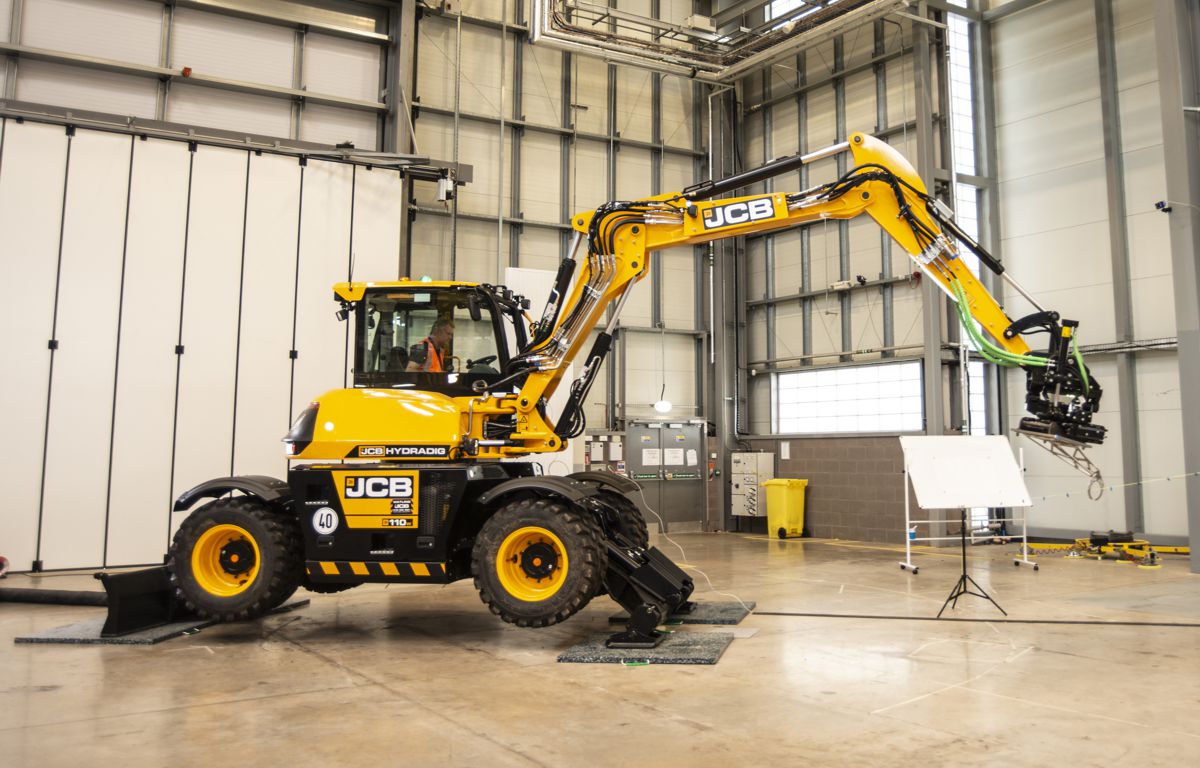JCB Hydradig excavator playing key role in project to transform UK construction
A JCB Hydradig wheeled excavator is playing a key role in supporting a £72m Government-backed project to transform UK construction through digitally-enabled modern methods of construction.
The machine is working within the Manufacturing Technology Centre (MTC) in Coventry, as part of a Construction Innovation Hub (Hub) technology project called Big Yellow Robots.
As the construction industry moves increasingly towards manufactured and offsite construction techniques – to increase efficiency, cut build times and reduce construction costs – the sector requires a new generation of equipment to assemble and install those offsite manufactured components. While there are machine control systems that allow an excavator or a dozer to automatically dig or grade to design, the Big Yellow Robots project is looking at ways in which machines like the Hydradig could accurately install glazing or cladding panels and other prefabricated construction sub-assemblies.
The Hub acquired a JCB Hydradig wheeled excavator for the project, with JCB providing engineering support, back-up and a skilled demonstration operator. With sensing technology attached to the machine and direct access to the Hydradig’s CAN system that controls the hydraulic valves, the team is able to accurately map every movement. In addition, an array of cameras within the test cell is focussed on reflective points on the boom and dipper, to follow the machine in real time.
The Hydradig, which is equipped with a two-piece TAB main boom and a tilt/rotator, is undertaking a range of repetitive operations. These include lifting and placing actual glazing components, using a pen mounted on the tilt/rotator to write on two white boards within the test cell and running a range of circular attachments along an inclined string without touching it.
“As part of the Construction Innovation Hub’s transformative programme, we are looking at a range of technologies to help the assembly of offsite components,” said Mark Ireland, Chief Engineer of Technology Strategy at the MTC. “That could be through robotising construction equipment, or ensuring robots can work in a construction environment. Our ultimate goal is to apply kinematic modelling to construction machinery.”
Manufacturing robots use kinematic modelling and cartesian grids (three-dimensional x, y and z coordinates) to accurately repeat complex movements. To achieve similar activities with an excavator, a skilled operator would need to be able to combine main boom, dipper arm, bucket ram and a tilt/rotator in an accurate, repeatable manner. The project is focussed on linearity and speed, to enable a non-skilled operator to work as efficiently as a highly skilled machine driver.
While robots cope well with repeatable tasks in a non-changing environment, such as a factory, they can struggle to deal with the many variables of site work and that is where the operator will be required. The Big Yellow Robots project is therefore working to refine what it calls ‘last metre automation’ where accuracy and repeatability are vital.
The JCB Hydradig is one of the most advanced wheeled tool-carrying machines on today’s construction sites. By contributing to the development of next generation technology, through projects like the Hub’s Big Yellow Robots, JCB will remain at the cutting-edge of excavator and construction machinery design tomorrow.





























